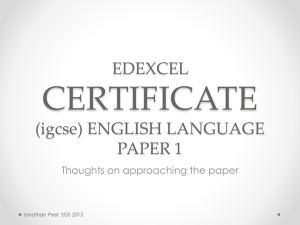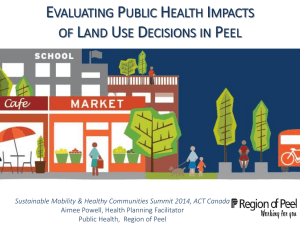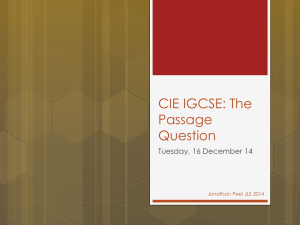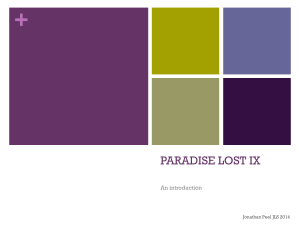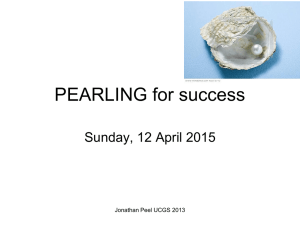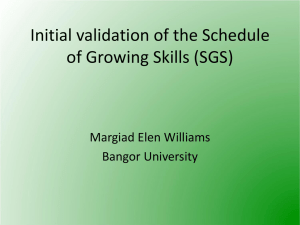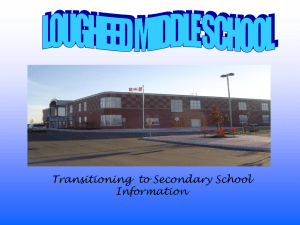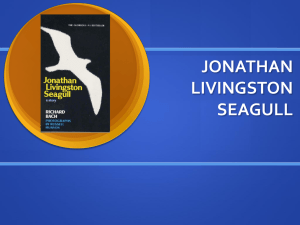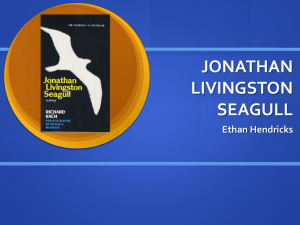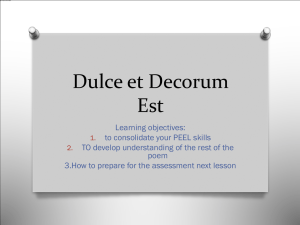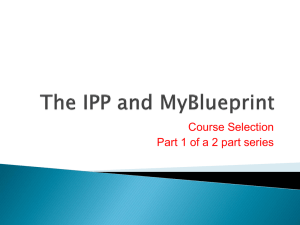Hide and seek, short
advertisement
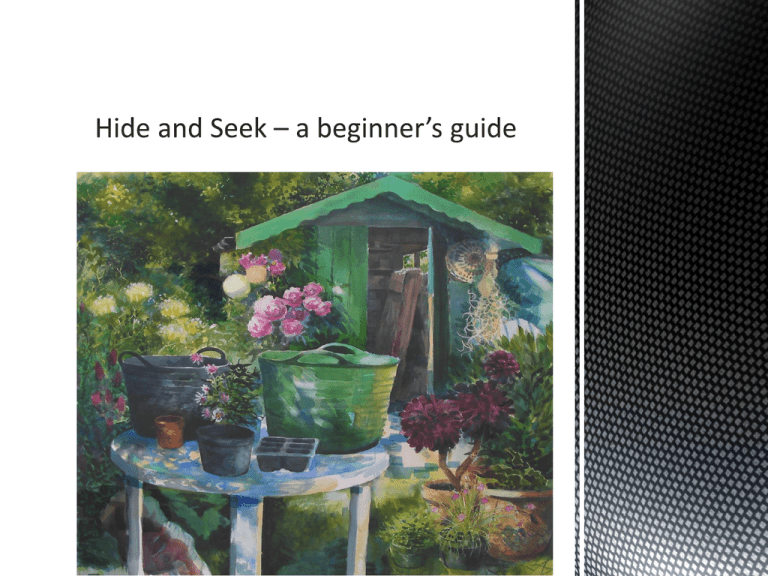
jonathan peel SGS 2013 A soldier and a boxer before he was a poet Wrote many poems about childhood and war. jonathan peel SGS 2013 Call out, call loud "I'm ready. Come and find me!" The sacks in the tool-shed smell like the seaside. They'll never find you in the salty dark, But be careful that your feet aren't sticking out, Wiser not to risk another shout. The floor is cold. They'll probably be searching the bushes, near the swing. Whatever happens you mustn't sneeze When they come prowling in. And here they are, whispering at the door You've never heard them sound so hushed before. Don't breathe, don't move, stay dumb. Hide in your blindness, they're moving closer Someone stumbles, mutters Their words and laughter scuttle and they're gone, But don't come out just yet, they'll try the lane And then the greenhouse and back here again. They must be thinking that you're very clever, Getting more puzzled as they search all over. It seems a long time since they went away. Your legs are stiff, the cold bites through your coat. The dark damp smell of sand moves in your throat. It's time to let them know that you're the winner Push off the sacks, uncurl and stretch. That's better! Out of the shed and call to them "I've won! Here I am! Come and own up! I've caught you!" The darkening garden watches, nothing stirs The bushes hold their breath, the sun is gone Yes, here you are - But where are they who sought you? jonathan peel SGS 2013 What can you find? To which poems does this one link ? Childhood Excitement Loneliness reminiscence jonathan peel SGS 2013 Can you identify the internal and external voices of the child? Or might the first line be a different voice – we will consider this at the end. Consider the simile in stanza 3 – what emotions are set up here? jonathan peel SGS 2013 How does the speaker feel about being found? Already the excitement is tinged with danger – can you spot the danger words? Which words begin to show discomfort? jonathan peel SGS 2013 How is tension increased by use of the senses here? Why does Scannell use “dumb” do you think? How would you describe the structure of the last sentence here? What is its effect? jonathan peel SGS 2013 What is the speaker feeling now? The poet uses assonance here very strongly. Which vowels does he stress and what is the effect? jonathan peel SGS 2013 Now the excitement is over, what happens to the setting of the poem? How has the seaside changed in the mind of the speaker? Consider time in this poem. Can you find words that suggest time passing? jonathan peel SGS 2013 Has he won? How does the emotion shift here? The last line is quite chilling. Who is the speaker? How is punctuation used to generate a sense of excitement here? How is a sense of threat and isolation created by the description of the setting? jonathan peel SGS 2013 Look for images associated with Isolation (is it always negative?) Childhood hopes and fears Light and Dark and their effect Silence and sound (senses…) jonathan peel SGS 2013 A single stanza in free verse. What is the effect of free verse and why might it have been used here? Why is there only a single stanza? Make suggestions. jonathan peel SGS 2013
